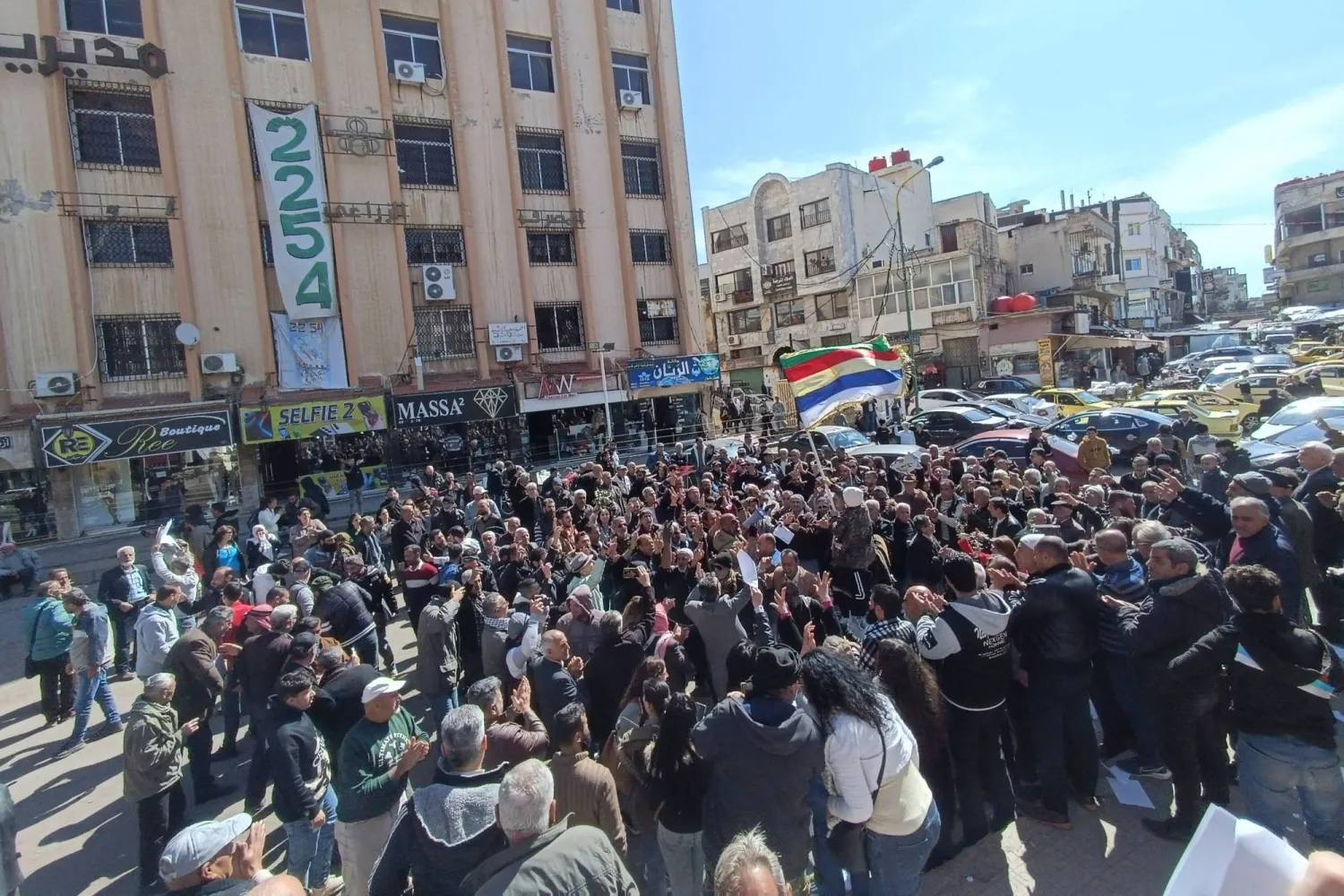A powerful al-Qaida-linked group that dominates much of opposition-held northwestern Syria released Friday one of its founders after he spent months in jail on suspicion of having links with forces outside the country.
The release appears to be a move by the militant group's top leader to appease the public as many have been protesting over the past week, demanding he leave and asking that the detainees be released, The Associated Press said.
On Friday, hundreds marched in a show of defiance against the militant chief, Abu Mohammed al-Golani, who runs the al-Qaida-linked Hayat Tahrir al-Sham group. The protests took place in the city of Idlib, the capital of the province with the same name, and surrounding towns and villages.
“Al-Golani, we don’t want you,” chanted some of the protesters in Idlib.
The al-Qaida-linked group has crushed several rival groups in the enclave over the past few years and violently suppressed any protests against it.
But public anger against the militants' wrongdoings has escalated.
The released militant is one of the group's co-founders, Maysara al-Jubouri, better known as Abu Maria al-Qahtani. He had been jailed since August over misuse of social media. The group said he was released after an investigation proved he was innocent.
Earlier in the week, the militant group released 420 detainees from its jails, following similar demonstrations sparked by the recent death of a member of an opposition faction, allegedly while being tortured in a jail run by the al-Qaida-linked group.
There have been allegations that the jails run by al-Golani targeted the group's own members suspected of allegedly having provided intelligence to the US-led coalition, which over the years led to the killing of top al-Qaida commanders in drone strikes in different parts of Syria.
During a rally on Tuesday night in the town of Daret Azzeh, al-Qaida-linked militants opened fire at the protesters but no casualties were reported.
Public sentiment against Hayat Tahrir al-Sham's leader has been rising since it arrested several senior members of the group, previously known as Nusra Front. The group has sought to distance itself from al-Qaida over the past years.
Al-Jubouri, an Iraqi citizen, had been a long time al-Qaida member who fought against US forces in Iraq following the 2003 US-led invasion that toppled Saddam Hussein. In 2011, he was one of several al-Qaida figures who moved to Syria, months after the country’s ongoing deadly conflict began.
Protesters March in Syria against al-Qaida-linked Group as a Prominent Militant is Released

File photo: A handout picture released by the Suwayda 24 news site shows people protesting in the southern Syrian city of Sweida on February 28, 2024. (Photo by SUWAYDA24 / AFP)

Protesters March in Syria against al-Qaida-linked Group as a Prominent Militant is Released

File photo: A handout picture released by the Suwayda 24 news site shows people protesting in the southern Syrian city of Sweida on February 28, 2024. (Photo by SUWAYDA24 / AFP)
لم تشترك بعد
انشئ حساباً خاصاً بك لتحصل على أخبار مخصصة لك ولتتمتع بخاصية حفظ المقالات وتتلقى نشراتنا البريدية المتنوعة







